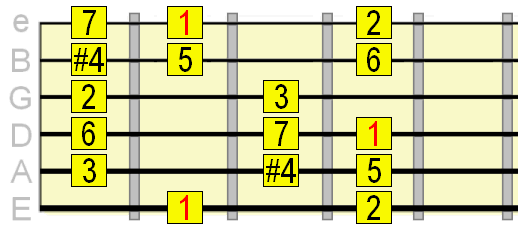Into The Lydian Mode
The Lydian Mode
Lydian can be considered in a number of ways...As a seven-tone scale we can use to accompany major and major 7th chords.As a harmonic system and mode of the major scale. But more broadly, Lydian encompasses a specific musical flavour that composers use to evoke certain emotions and feelings. The Lydian mode is cool because it doesn't really have the avoid note like the Major scale (in which the natural 4th is not really a nice sound, clashes with the 3rd of the chord). The #4 degree is dissonant but sounds cool, not wrong. Many people use this instead of the major scale where there is an unrelated Major Chord, and even sometimes when it's a I chord in a key


